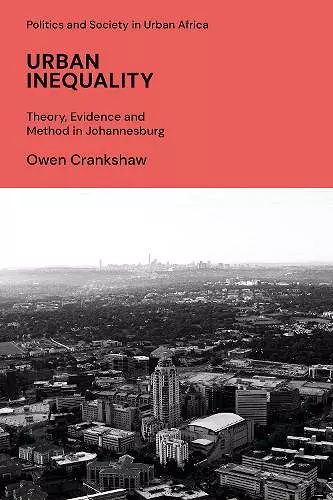Urban Inequality
Theory, Evidence and Method in Johannesburg
Format:Paperback
Publisher:Bloomsbury Publishing PLC
Published:24th Aug '23
£28.99
Supplier delay - available to order, but may take longer than usual.

Examining how the changing pattern of earnings and occupational inequality in Johannesburg is better described by the professionalism of employment alongside high-levels of chronic unemployment.
Based on new evidence that challenges existing theories of urban inequality, Crankshaw argues that the changing pattern of earnings and occupational inequality in Johannesburg is better described by the professionalism of employment alongside high-levels of chronic unemployment.
Central to this examination is that the social polarisation hypothesis, which is accepted by many, is simply wrong in the case of Johannesburg. Ultimately, Crankshaw posits that the post-Fordist, post-apartheid period is characterised by a completely new division of labour that has caused new forms of racial inequality. That racial inequality in the post-apartheid period is not the result of the persistence of apartheid-era causes, but is the result of new causes that have interacted with the historical effects of apartheid to produce new patterns of racial inequality.
This detailed study of urban inequality in Johannesburg provides a rigorous examination of the links between de-industrialisation, occupational change, residential segregation and the housing market. It highlights the way in which race and the legacy of the South African apartheid state intersect with changes in the structure of the labour market over a 40 year period from 1970-2011 to change the structure of urban inequality. It is an invaluable source which links to wider international debates about urban social polarisation, professionalization and the post-Fordist city. A ‘must read’ for all students of African cities. * Emeritus Professor Chris Hamnett, King’s College London, UK *
ISBN: 9781786998958
Dimensions: unknown
Weight: unknown
232 pages